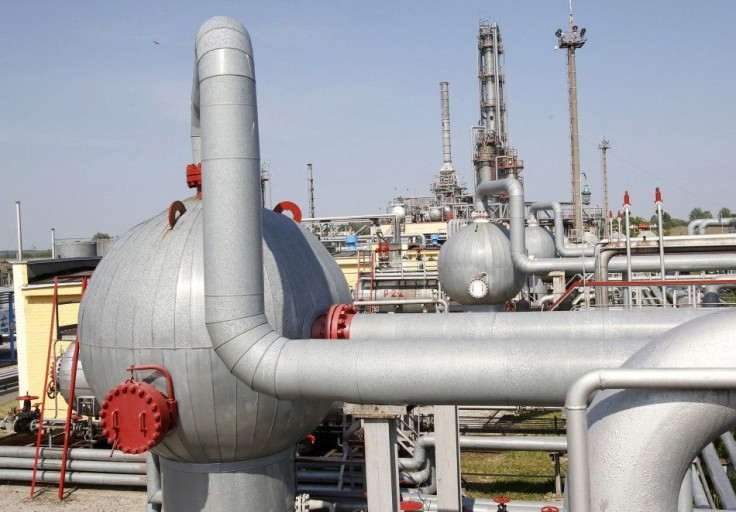New York Lifts 'Fracking' Ban, But Profit, Safety Questions Persist

New York state appears likely to lift its ban on extracting natural gas through the controversial process known as hydraulic fracturing after the state's Department of Environmental Conservation released updated guidelines for conducting the procedure.
The news is being lauded by energy companies who have pushed for access to the vast reserves of natural gas trapped in underground shale formations and by Gov. Andrew Cuomo, who has embraced the economic boon the state could reap in harvesting the fuel. But other public officials have intensified their scrutiny of the natural gas industry amidst revelations that interested parties may have overstated the profitability of natural gas while downplaying the dangers of extracting it.
Hydraulic fracturing, or hydrofracking, involves blasting a mixture of sand, water, and chemicals deep underground to dislodge the natural gas locked into shale formations, and environmental groups have called for greater regulation of the potentially hazardous procedure. The new guidelines respond to such concerns, prohibiting hydrofracking in state parks and in the New York City and Syracuse watersheds while establishing rigorous and effective permitting requirements.
Department of Environmental Conservation Commissioner Joseph Martens said the overhaul represents a balance between protecting our environment, watersheds and drinking water, and promoting economic development, and environmental advocates expressed cautious support. Conservation Voters Spokesman Dan Hendrick called the new plan a big improvement, and Environmental Advocates of New York policy Director David Gahl signaled a willingness to support the proposal if a sufficient legal and regulatory safety net was in place.
However, State Assemblywoman Barabara Lifton, a staunch opponent of hydrofracking, charged that the guidelines protect people who rely on the New York City and Syracuse watersheds while exposing others to danger.
If hydrofracking is not safe in the New York City watershed it's not safe in any watershed, Lifton said. There's a tacit admission on the part of the DEC that it is not safe and yet it is being allowed.
Lifton sent a letter to New York Comptroller Thomas DiNapoli asking him to demand more information from energy companies, joining a chorus of lawmakers and public officials who have sought more information on hydrofracking since a New York Times report revealed widespread skepticism within the industry that natural gas harvesting is as lucrative or as safe as proponents had claimed. One analyst called the procedure a giant Ponzi scheme, while another described the industry's propensity to bend light to hide the truth.
We keep hearing that we need energy, we need natural gas and there are projections about what this is going to produce but that is being called into serious question at this point, she said, adding that past studies of natural gas extraction have detailed a classic boom and bust economy.
DiNapoli has also pressed oil companies to release more information about the risks associated with the procedure, noting that the New York State Common Retirement Fund has invested in firms that seek to harvest natural gas. U.S. Rep. Maurice Hinchey, D-N.Y., asked the U.S. Securities and Exchange Commission to investigate whether investors have been intentionally misled, and New York Attorney General Eric Schneiderman subpoenaed five oil and gas companies for documents detailing the risks the procedure entails.
New York will now enter a period in which the Department of Environmental Conservation will review and respond to public comments before new permits can be issued.
© Copyright IBTimes 2024. All rights reserved.





















